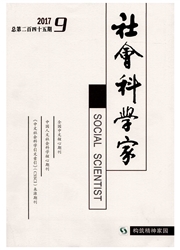

 中文摘要:
中文摘要:
犯错在组织中并不少见。但基于建立良好形象的动机,员工很少会主动承认差错。基于自我认知和信息加工理论,提出员工积极自我认知会促进差错承认,同时差错承认会向上级传递信号影响其对员工的绩效评估。通过对675名员工及其配对上级两阶段的调研,使用三明治分析方法,发现员工自我效能感正向影响差错承认;差错承认对上级评价员工任务绩效无显著影响,但会显著降低上级对员工反生产行为的评估,由此说明了差错承认的奖励。
 英文摘要:
英文摘要:
Making errors is not rare in organizations, especially under the increasing fierce competition and high pressure to accurately finish tasks in short order. Yet in order to leave good impression to their supervisors, employees are less likely to admit their errors. Based on the self-cognition theory, it proposed that those with high confidence tend to admit errors. Moreover, it applied the information-processing theory to explore whether employees' admitting errors would have detrimental effect on leaders' evaluation. Overall, this study developed a model integrating the antecedent as employees' self-efficacy and the outcomes as leaders' evaluation of employees' task performance and counterproductive behaviors. To examine the causal effect, this study collected data in 2 waves. In time 1, it collected employees' demographic variables and employees' self- efficacy; in time 2, it collected employees' error admitting behaviors. Also, in time 2, immediate supervisors were asked to evaluate subordinates' task performance and counterproductive behaviors. In time 1, it gained 761 samples; in time 2, 675 employees and their immediate supervisors responded to the questionnaire. In the samplel the leader needs to evaluate 11 employees. To rule out the nesting effect of leaders in evaluating employees' performance, this study adopted the sandwiches estimator from Liu et al.'s (2015) study and used Mplus 6.0 soRware to do the analysis. Results revealed that 1) employees' self-efficacy had positive impact on error admitting =. 10,p 〈 .05); 2) error admitting had non-significant impact on leaders' evaluation of employees' task performance (B = .08,p 〉 .05), but negatively influenced leaders' evaluation of employees' counterproductive behaviors ~ = -.19, p 〈 .05). Results showed that error admitting was not that detrimental to leaders' evaluation of employees' performance; in fact, admitting errors could help to reduce leaders' evaluation of individuals' deviant be
 同期刊论文项目
同期刊论文项目
 同项目期刊论文
同项目期刊论文
 期刊信息
期刊信息
